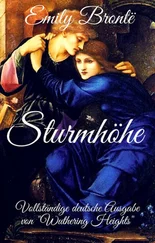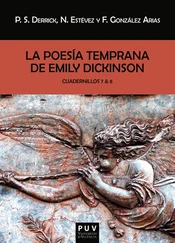Emily Mandel - Station Eleven
Здесь есть возможность читать онлайн «Emily Mandel - Station Eleven» весь текст электронной книги совершенно бесплатно (целиком полную версию без сокращений). В некоторых случаях можно слушать аудио, скачать через торрент в формате fb2 и присутствует краткое содержание. Год выпуска: 2014, ISBN: 2014, Издательство: Knopf, Жанр: Старинная литература, на английском языке. Описание произведения, (предисловие) а так же отзывы посетителей доступны на портале библиотеки ЛибКат.
- Название:Station Eleven
- Автор:
- Издательство:Knopf
- Жанр:
- Год:2014
- ISBN:9780385353311
- Рейтинг книги:4 / 5. Голосов: 1
-
Избранное:Добавить в избранное
- Отзывы:
-
Ваша оценка:
- 80
- 1
- 2
- 3
- 4
- 5
Station Eleven: краткое содержание, описание и аннотация
Предлагаем к чтению аннотацию, описание, краткое содержание или предисловие (зависит от того, что написал сам автор книги «Station Eleven»). Если вы не нашли необходимую информацию о книге — напишите в комментариях, мы постараемся отыскать её.
Station Eleven — читать онлайн бесплатно полную книгу (весь текст) целиком
Ниже представлен текст книги, разбитый по страницам. Система сохранения места последней прочитанной страницы, позволяет с удобством читать онлайн бесплатно книгу «Station Eleven», без необходимости каждый раз заново искать на чём Вы остановились. Поставьте закладку, и сможете в любой момент перейти на страницу, на которой закончили чтение.
Интервал:
Закладка:
“Do they?” the conductor said. “Are there other towns nearby, perhaps down the coast, where people typically travel?”
“There’s no town nearby,” he said. “But everyone”—he looked over his shoulder at the silent crowd, smiling at them, and spoke loudly enough for everyone to hear him—“everyone here, of course, is free to go as they please.”
“Naturally,” the conductor said. “I wouldn’t have expected otherwise. It’s just that we wouldn’t have expected them to set off on their own, given that they knew we were coming back for them.”
The prophet nodded. Kirsten edged closer to eavesdrop more effectively. The other actors were receding quietly from the stage. “My people and I,” he said, “when we speak of the light, we speak of order. This is a place of order. People with chaos in their hearts cannot abide here.”
“If you’ll forgive me for prying, though, I have to ask about the markers in the graveyard.”
“It’s not an unreasonable question,” the prophet said. “You’ve been on the road for some time, have you not?”
“Yes.”
“Your Symphony was on the road in the beginning?”
“Close to it,” the conductor said. “Year Five.”
“And you?” The prophet turned suddenly to Kirsten.
“I walked for all of Year One.” Although she felt dishonest claiming this, given that she had no memory whatsoever of that first year.
“If you’ve been on the road for that long,” the prophet said, “if you’ve wandered all your life, as I have, through the terrible chaos, if you remember, as I do, everything you’ve ever seen, then you know there’s more than one way to die.”
“Oh, I’ve seen multiple ways,” the conductor said, and Kirsten saw that she was remaining calm with some difficulty, “actually everything from drowning to decapitation to fever, but none of those ways would account for—”
“You misunderstand me,” the prophet said. “I’m not speaking of the tedious variations on physical death. There’s the death of the body, and there’s the death of the soul. I saw my mother die twice. When the fallen slink away without permission,” he said, “we hold funerals for them and erect markers in the graveyard, because to us they are dead.” He glanced over his shoulder, at Alexandra collecting flowers from the stage, and spoke into the conductor’s ear.
The conductor stepped back. “Absolutely not,” she said. “It’s out of the question.”
The prophet stared at her for a moment before he turned away. He murmured something to a man in the front row, the archer who’d been guarding the gas station that morning, and they walked together away from the Walmart.
“Luli!” the prophet called over his shoulder, and the dog trotted after him. The audience was dispersing now, and within minutes the Symphony was alone in the parking lot. It was the first time in memory that no one from the audience had lingered to speak with the Symphony after a performance.
“Quickly,” the conductor said. “Harness the horses.”
“I thought we were staying a few days,” Alexandra said, a little whiny.
“It’s a doomsday cult.” The clarinet was unclipping the Midsummer Night’s Dream backdrop. “Weren’t you listening?”
“But the last time we came here—”
“This isn’t the town it was the last time we were here.” The painted forest collapsed into folds and fell soundlessly to the pavement. “This is one of those places where you don’t notice everyone’s dropping dead around you till you’ve already drunk the poisoned wine.” Kirsten knelt to help the clarinet roll the fabric. “You should maybe wash that dress,” the clarinet said.
“He’s gone back into the gas station,” Sayid said. There were armed guards posted on either side of the gas station door now, indistinct in the twilight. A cooking fire flared by the motel.
The Symphony was on their way within minutes, departing down a back road behind the Walmart that took them away from the center of town. A small fire flickered by the roadside ahead. They found a boy there, a sentry, roasting something that might have been a squirrel at the end of a stick. Most towns had sentries with whistles at the obvious points of entry, the idea being that it was nice to have a little warning if marauders were coming through, but the boy’s youth and inattention suggested that this wasn’t considered an especially dangerous post. He stood as they approached, holding his dinner away from the flames.
“You have permission to leave?” he called out.
The conductor motioned to the first flute, who was driving the lead caravan—keep moving—and went to speak with the boy. “Good evening,” she said. Kirsten stopped walking and lingered a few feet away, listening.
“What’s your name?” he asked, suspicious.
“People call me the conductor.”
“And that’s your name?”
“It’s the only name I use. Is that dinner?”
“Did you get permission to leave?”
“The last time we were here,” she said, “no permission was required.”
“It’s different now.” The boy’s voice hadn’t broken yet. He sounded very young.
“What if we didn’t have permission?”
“Well,” the boy said, “when people leave without permission, we have funerals for them.”
“What happens when they come back?”
“If we’ve already had a funeral …,” the boy said, but seemed unable to finish the sentence.
“This place,” the fourth guitar muttered. “This goddamned hellhole.” He touched Kirsten’s arm as he passed. “Better keep moving, Kiki.”
“So you wouldn’t advise coming back here,” the conductor said. The last caravan was passing. Sayid, bringing up the rear, seized Kirsten’s shoulder and propelled her along the road.
“How much danger do you want to put yourself in?” he hissed. “Keep walking.”
“Don’t tell me what to do.”
“Then don’t be an idiot.”
“Will you take me with you?” Kirsten heard the boy ask. The conductor said something she couldn’t hear, and when she looked back the boy was staring after the departing Symphony, his squirrel forgotten at the end of the stick.
The night cooled as they left St. Deborah by the Water. The only sounds were the clopping of horseshoes on cracked pavement, the creaking of the caravans, the footsteps of the Symphony as they walked, small rustlings from the night forest. A fragrance of pine and wildflowers and grass in the air, the stars so bright that the caravans cast lurching shadows on the road. They’d left so quickly that they were all still in their costumes, Kirsten holding up her Titania dress so as not to trip over it and Sayid a strange vision in his Oberon tuxedo, the white of his shirt flashing when he turned to look back. Kirsten passed him to speak with the conductor, who walked as always by the first caravan.
“What did you tell the boy by the road?”
“That we couldn’t risk the perception of kidnapping,” the conductor said.
“What did the prophet say to you after the concert?”
The conductor glanced over her shoulder. “You’ll keep this to yourself?”
“I’ll probably tell August.”
“Of course you will. But no one else?”
“Okay,” Kirsten said, “no one else.”
“He suggested that we consider leaving Alexandra, as a guarantee of future good relations between the Symphony and the town.”
“Leaving her? Why would we …?”
“He said he’s looking for another bride.”
Kirsten dropped back to tell August, who swore softly and shook his head. Alexandra was walking by the third caravan, oblivious, looking up at the stars.
Sometime after midnight the Symphony stopped to rest. Kirsten threw the Titania gown into the back of a caravan and changed into the dress she always wore in hot weather, soft cotton with patches here and there. The reassuring weight of knives on her belt. Jackson and the second oboe took two of the horses and rode back along the road for a mile, returned to report that no one seemed to be following.
Читать дальшеИнтервал:
Закладка:
Похожие книги на «Station Eleven»
Представляем Вашему вниманию похожие книги на «Station Eleven» списком для выбора. Мы отобрали схожую по названию и смыслу литературу в надежде предоставить читателям больше вариантов отыскать новые, интересные, ещё непрочитанные произведения.
Обсуждение, отзывы о книге «Station Eleven» и просто собственные мнения читателей. Оставьте ваши комментарии, напишите, что Вы думаете о произведении, его смысле или главных героях. Укажите что конкретно понравилось, а что нет, и почему Вы так считаете.












